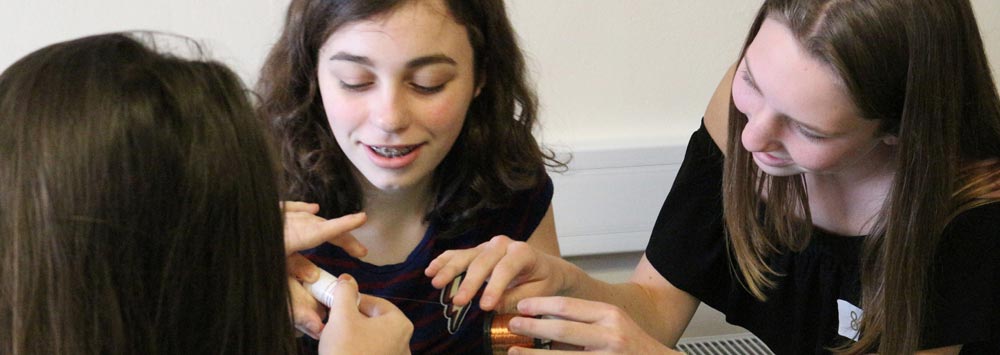
Improving the gender balance in physics will be key for best science
Physics tries to understand nature in all its facets. For more than two decades only a fifth of A-level physics students have been girls in the UK. It is very worrying that many girls are being put off this interesting subject at a very early age and thereby are being denied the opportunities, excitement and vision that it embodies.
We are very proud to have several highly successful women in our group, such as Dr Alex Alexandrova, who first did an award-winning PhD thesis with us, became an Enterprise Fellow with the Royal Society of Edinburgh and STFC, and most recently founded the company D-Beam.
We have almost achieved a 50:50 gender balance in our OMA project on medical accelerators in which Jacinta Yap is a Fellow.
Bianca Veglia and Milena Vujanovic have both been awarded prestigious European Fellowships within the Marie Curie network AVA on antimatter research. In Selina Dhinsey we have an early stage researcher who is part of a major initiative in Big Data Science through our LIV.DAT centre for doctoral training and Lina Hoummi does a truly international PhD between the University of Liverpool/Cockcroft Institute and the synchrotron light source SOLEIL in France. She spends years 1 and 4 of her PhD in the UK and carries out research in France into the optimization of advanced light sources during the remaining 2 years.
The QUASAR Group has been active for many years in fascinating more people with our excitement for science and discovery. We have organized accelerator experience days, events about the Physics of Star Wars and most recently produced a video about our antimatter research.
The entire QUASAR Group celebrates the 2018 International Day of Women and Girls in Science with stories about the research our female QUASARs are carrying out. These can be accessed by clicking on their names in this article.
I believe that we have amazing examples of the many exciting opportunities research in physics provides and hope that we can help encourage more girls to join us in studying physics and understanding nature better.
Prof Carsten P Welsch, QUASAR Group leader